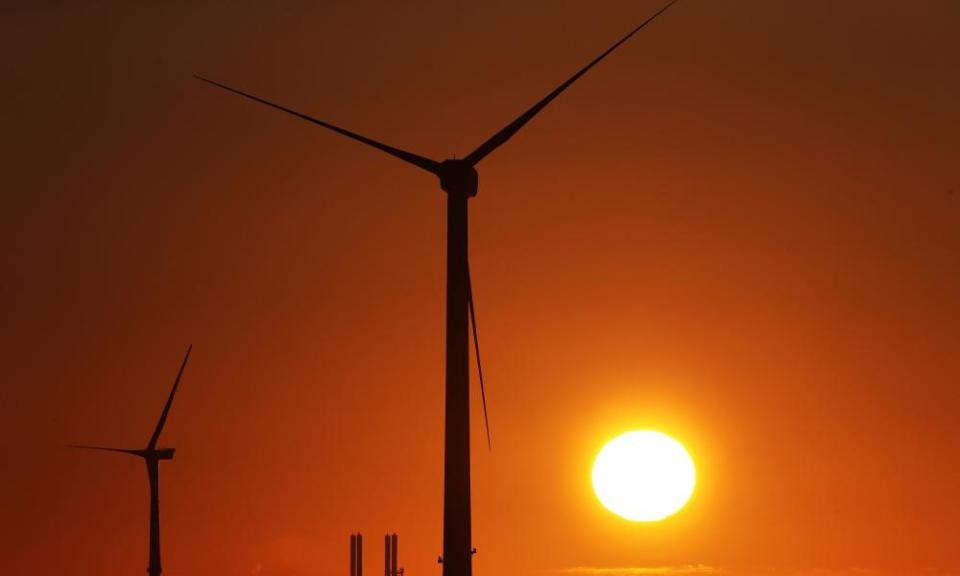Australia's politics only barrier to clean energy system, report finds

Politics is the only barrier to modernising Australia’s ageing electricity system, according to a synthesis report by the Climate Council.
The council found there was agreement among a series of major independent reports that there were no technological or economic barriers to a clean, secure, affordable and reliable grid.
The Climate Council report coincides with international law firm Pinsent Masons’ release of research findings that 90% of energy utility companies around the world are actively seeking acquisitions or joint ventures with companies that implement smart energy technologies like batteries, vehicle-to-grid technology and smart meters, but policy uncertainty is limiting investment in Australia.
Within a decade, more than one-third of Australia’s coal plants in the national electricity market will be more than 50 years old – after which the vast majority of coal plants fail to operate.
Reports by the independent operator of the grid, Aemo, CSIRO and the chief scientist, Alan Finkel, found there were no technical barriers to modernising the grid, the Climate Council report found.
“Combining low-cost wind and solar PV [photovoltaic] with other renewable energy technologies, such as solar thermal, hydro and biomass plants, can provide round-the-clock or on-demand power, as well as meeting technical requirements for grid stability,” said the report, authored by Andrew Stock, a Climate Council councillor who previously spent four decades in the energy industry.
The report said combining those technologies with grid-scale batteries, pumped hydro and heat storage would would increase the reliability of the system, as well as add competition to the market.
There was also a large degree of consensus among the surveyed reports that modernising the system in that way would increase reliability in the face of climate change and increased extreme weather.
Relying on a large number of smaller distributed renewable generators, rather than a small number of massive fossil-fuel generators, meant single outages in the system caused by wild weather would be less disruptive.
“Generating and storing power closer to where it is needed – for example, using solar and storage technologies – can reduce risks of grid failure for critical infrastructure,” the Climate Council report said.
The surveyed reports also found renewable energy would push down energy prices for consumers. One CSIRO report this year concluded a zero-emissions grid by 2050 would save the average household $414 a year compared with a business-as-usual approach.
“There’s no disputing it – fossil-fuel technology is obsolete, expensive and unreliable,” Stock said. “It’s time to look to the future with an energy system fit for the 21st century.”
The prime minister, Malcolm Turnbull, and the minister for the environment and energy, Josh Frydenberg, have been unable to get a climate and energy policy through the party room, leaving the industry in limbo.
This means businesses have been discouraged from investing in new electricity generation because the federal government can give them no confidence about future policy that would affect their investments.
The Climate Council chief executive, Amanda McKenzie, said the lack of a bipartisan policy was the only barrier remaining.
“The nation’s leading energy experts, scientists and major authorities are all in agreement – Australia is ready to switch to a modern grid, powered by renewables and storage,” she said. “However, the only thing stopping this is political will.”
The vast majority of large energy companies globally also appear keen to invest millions in smart-grid technologies that would enable the transition. Pinsent Masons surveyed 250 senior-level executives from 200 energy generation and distribution companies (and investors in those markets) with revenues over US$1bn across Europe, the Middle East, Africa and the Asia Pacific.
The firm found 90% of the utility companies in the survey were planning a joint venture with, or an acquisition of, a smart-grid technology company.
Australia was among the top five countries that the surveyed businesses were targeting for investment, but was being limited by lack of policy clarity.
Uncertainty and lack of legislation were highlighted as the biggest investment blockers for 13% of utilities in the survey.
Nordic countries took the top place for attractiveness for investment, partly because energy policies there were clear.
“The Nordics are not only ahead in the technology bit, but their policies are also the best,” said one investor quoted in the report. “They have gradually changed their energy consumption and have successfully achieved their transformation targets, which are just increasing year-on-year as their policies are in favour of consumers. Businesses are benefiting either way with growth and rising interests of new consumers.”
A chief financial officer of an Australian utility was quoted as saying: “Countries without a cohesive energy policy are usually in turmoil when it comes to issues around energy distribution and management. For an investor looking to enter that market with smart energy solutions, it means a lot of uncertainty.”

 Yahoo News
Yahoo News 